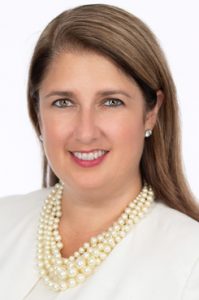'Mommy Track' Lawsuit Aside, Many Firms Look to Make Life Easier on Parents
Many law firms have continually expanded their support programs for new parents as they discover that official parental leave policies alone do little to end the perception of gender inequality and a "mommy track."
May 02, 2018 at 04:44 PM
8 minute read

Even as Morrison & Foerster's alleged treatment of pregnant women and recent mothers faced scrutiny in a lawsuit filed this week, many large law firms have continued a march toward ever-expanding leave policies and support programs for new parents.
On Tuesday, for example, Schiff Hardin announced a new “Ramp Up/Down” policy, which allows a lawyer to qualify for a 20 percent reduction in their hours requirement—without any pay reduction—in the month before and after their parental leave period. The reduced hours program comes on top of other benefits, such as 18 weeks of paid parental leave that Schiff Hardin offers to primary caregivers.
“This policy is about promoting work-life balance and retaining working parents,” said Amanda Schermer MacVey, a Washington, D.C.-based partner at Schiff Hardin who is also a member of the firm's diversity committee and chair of a subcommittee on gender diversity. “Schiff doesn't want the pressure associated with that adjustment period to lead a working parent to question their future at the firm.”
MacVey added that beyond the impact on the firm's lawyers, the new program should also help ease transitions for firm clients. Allowing expecting parents to reduce their workload well in advance of their time off creates time to get other lawyers up to speed on client matters and an opportunity to introduce any new lawyers on a team to the client.
But MacVey and others in the legal industry acknowledged that a new policy or program is only one piece of the puzzle for supporting new parents: a firm also has to signal from its highest level that the policies are there for a reason, namely that those eligible for them should use them. That top-down messaging, according to people in the industry, can help avoid situations in which junior lawyers feel like they'll be left behind if they take time off or drop their hours.
 Casey Ryan.
Casey Ryan. As at Schiff Hardin, a ramp-up program is also in the works at Reed Smith, according to Casey Ryan, a Pittsburgh-based partner who also serves as global head of legal personnel at the firm—a role that puts her among the firm's senior management team. Ryan said the firm plans to formally announce the program in May, although she's already spoken to associates about it.
Under the Reed Smith ramp up, Ryan said, attorneys who take eight weeks or more of leave can qualify, when they return, for a reduction in their billable hour requirements. The first month back, the reduction can be as much as 40 percent, then up to 30 percent for the second month back, 20 percent for the third month back, and 10 percent for the fourth month after the leave period ends.
Orrick, Herrington & Sutcliffe also has an on-ramp period as part of its family leave program, which has a number of other components as well, such as 22 weeks of paid time off for primary caregivers and a donation to a tax-advantaged 529 college savings account.
Beyond those reduced hour programs for parents, Reed Smith and Schiff Hardin have embraced other programs aimed at supporting lawyers with new children. The firms both offer Mindful Return, an online course created by a Dentons lawyer that coaches professionals on coming back to work after taking leave to care for a child.
Reed Smith and Schiff Hardin also both offer to cover the costs of shipping breast milk through a company called Milk Stork, which allows women who are breastfeeding to pump and ship milk back to their homes if they're out-of-town for work. Other firms, including Latham & Watkins, have rolled out similar programs in recent years, and many major law firms have taken other steps to expand their paid parental leave policies.
“Investing in our lawyers when they're going through an exciting, but challenging, time of their life—it's part of the firm culture,” said Ryan of Reed Smith.
In these types of programs, Ryan, Schiff Hardin's MacVey, and others in the legal industry said they see benefits for both new parents looking to stay on their career track and for the firms, themselves. For the firms, they said, there are clear upsides for retaining talented young lawyers and, because attorneys often have contacts at other large law firms, a good parental leave program can serve as a way of attracting lateral hires.
“Looking at a firm and seeing that they take these things seriously makes a difference,” said Ryan.
Kate Reder Sheikh, a managing director at Major, Lindsey & Africa who focuses on associate recruitment, had a similar take.
“The way that people treat their employees is incredibly salient in how people make decisions about their careers,” she said.
In addition to formal policies, Reed Smith, Schiff Hardin and other firms, such as Jackson Lewis, have found other ways of supporting new parents, including through new mothers or parents groups that fall under the ambit of the firm's diversity and inclusion committees.
At Reed Smith, according to Ryan, there's a group called “Returners,” open to women and men at the firm. It establishes a liaison in each U.S. office—typically someone who's taken a leave period and came back to work afterward. That person is meant to serve as a resource for others in that office who have made a recent transition back into working life.
Schiff Hardin, meanwhile, has a “New Moms” group that allows mothers at the firm to share tips on transitioning back to work after maternity leave, and which has influenced decisions at the management level. In Monday's announcement about the ramp-up policy, the firm said discussions with the New Moms group led to the new parental leave program, as well as the firm's offerings of the Milk Stork and Mindful Return programs.
At Jackson Lewis, a group called “Practicing and Parenting” that started in the firm's Orange County, California, office is now rolling out to other offices, according to principal Alison Lynch, who helped start the group. Lynch, who became an equity principal at the firm soon after she returned from a five-month family leave that followed the birth of her second child, said the group meets quarterly and discusses issues such as time management, work-life balance, and tips for career advancement during the early stages of parenthood.
“We don't want to see people who think, just because they've become a parent, you can't do this job,” said Lynch.
But even as many firms offer more generous parental leave policies and support for new parents, there are sometimes challenges where the policies meet the reality of life in a large law firm. It's one thing to have a policy in place, but that doesn't necessarily translate into an associate or young partner feeling comfortable enough to take full advantage of those benefits, especially if they're paired with a more senior partner who takes a dim view of a person who has taken time off or comes back to work on a reduced schedule.
In some respects, those types of issues emerged in the context of the pregnancy discrimination lawsuit lodged against MoFo on Monday. A putative class action filed by three unnamed female associates at the firm alleged that, even though the firm offers 20 weeks of paid parental leave for primary caregivers, the female associates still faced undue pressure, reduced opportunities and lower pay once they came back from maternity leave.
“At MoFo, the mommy track is a dead end,” the suit said.
Following the suit, MoFo issued a statement rejecting the claims, saying the firm “has a long and proven track record of supporting and advancing our associates as they return from maternity leave,” and that “we vigorously dispute this claim and are confident that the firm will be vindicated.”
Setting the MoFo lawsuit and discrimination allegations aside, many firms have grown cognizant of the potential for a disconnect between a policy that's on the books and how it's actually used or implemented. Bridging that divide often means ensuring that both junior lawyers and their more senior counterparts recognize that the policies and the programs aren't just window dressing, according to people in the industry.
Major Lindsey's Sheikh, for one, said firms would do well to have those policies in place, but also to set a tone from the top that the programs are meant to be used without penalty. Doing so can pay dividends for the firm in the long-run, she said, because the way a firm approaches new parents can weigh heavily on how a junior lawyer views her or his own firm, or how that person views the possibility of making a lateral move to a new firm. All of that can help a firm draw in and keep top talent.
“We all understand that running a law firm is a business … but I actually think it will enhance their bottom line to the extent that they keep moving in this positive direction of treating employees the way they want to be treated,” said Sheikh. “These are real, live issues for associates.”
This content has been archived. It is available through our partners, LexisNexis® and Bloomberg Law.
To view this content, please continue to their sites.
Not a Lexis Subscriber?
Subscribe Now
Not a Bloomberg Law Subscriber?
Subscribe Now
NOT FOR REPRINT
© 2025 ALM Global, LLC, All Rights Reserved. Request academic re-use from www.copyright.com. All other uses, submit a request to [email protected]. For more information visit Asset & Logo Licensing.
You Might Like
View All

Trending Stories
Who Got The Work
J. Brugh Lower of Gibbons has entered an appearance for industrial equipment supplier Devco Corporation in a pending trademark infringement lawsuit. The suit, accusing the defendant of selling knock-off Graco products, was filed Dec. 18 in New Jersey District Court by Rivkin Radler on behalf of Graco Inc. and Graco Minnesota. The case, assigned to U.S. District Judge Zahid N. Quraishi, is 3:24-cv-11294, Graco Inc. et al v. Devco Corporation.
Who Got The Work
Rebecca Maller-Stein and Kent A. Yalowitz of Arnold & Porter Kaye Scholer have entered their appearances for Hanaco Venture Capital and its executives, Lior Prosor and David Frankel, in a pending securities lawsuit. The action, filed on Dec. 24 in New York Southern District Court by Zell, Aron & Co. on behalf of Goldeneye Advisors, accuses the defendants of negligently and fraudulently managing the plaintiff's $1 million investment. The case, assigned to U.S. District Judge Vernon S. Broderick, is 1:24-cv-09918, Goldeneye Advisors, LLC v. Hanaco Venture Capital, Ltd. et al.
Who Got The Work
Attorneys from A&O Shearman has stepped in as defense counsel for Toronto-Dominion Bank and other defendants in a pending securities class action. The suit, filed Dec. 11 in New York Southern District Court by Bleichmar Fonti & Auld, accuses the defendants of concealing the bank's 'pervasive' deficiencies in regards to its compliance with the Bank Secrecy Act and the quality of its anti-money laundering controls. The case, assigned to U.S. District Judge Arun Subramanian, is 1:24-cv-09445, Gonzalez v. The Toronto-Dominion Bank et al.
Who Got The Work
Crown Castle International, a Pennsylvania company providing shared communications infrastructure, has turned to Luke D. Wolf of Gordon Rees Scully Mansukhani to fend off a pending breach-of-contract lawsuit. The court action, filed Nov. 25 in Michigan Eastern District Court by Hooper Hathaway PC on behalf of The Town Residences LLC, accuses Crown Castle of failing to transfer approximately $30,000 in utility payments from T-Mobile in breach of a roof-top lease and assignment agreement. The case, assigned to U.S. District Judge Susan K. Declercq, is 2:24-cv-13131, The Town Residences LLC v. T-Mobile US, Inc. et al.
Who Got The Work
Wilfred P. Coronato and Daniel M. Schwartz of McCarter & English have stepped in as defense counsel to Electrolux Home Products Inc. in a pending product liability lawsuit. The court action, filed Nov. 26 in New York Eastern District Court by Poulos Lopiccolo PC and Nagel Rice LLP on behalf of David Stern, alleges that the defendant's refrigerators’ drawers and shelving repeatedly break and fall apart within months after purchase. The case, assigned to U.S. District Judge Joan M. Azrack, is 2:24-cv-08204, Stern v. Electrolux Home Products, Inc.
Featured Firms
Law Offices of Gary Martin Hays & Associates, P.C.
(470) 294-1674
Law Offices of Mark E. Salomone
(857) 444-6468
Smith & Hassler
(713) 739-1250











